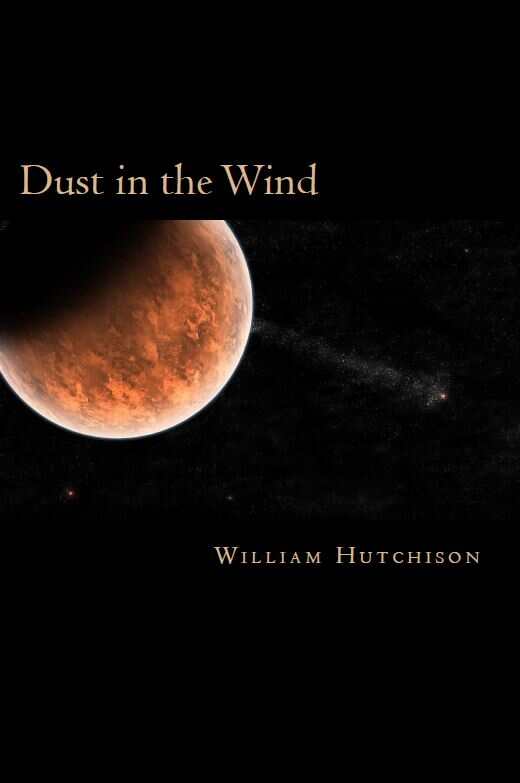Dust in the Wind
This imaginative dystopian thriller tackles present-day problems as it ventures to Mars and back.
In Dust in the Wind, William A. Hutchison explores a dystopian future beset by the effects of severe climate change. With few options left, humanity looks to space as the last chance for salvation. The narrative is imaginative, engaging, and sure to be appreciated by lovers of science fiction.
The story begins in the 2030s. The population has grown to nearly ten billion, and Earth is reaching its limit. Diminishing oxygen levels and an increasingly bleak future catalyze the creation of Project Helios, an ambitious plan to build a habitable colony on Mars. After a successful trip to collect samples, thousands flock to see the first rocks brought from the red planet. Exposure to the samples causes dozens of women around the world to give birth to small, almond-eyed, and oddly smiling babies. As symptoms spread beyond newborns, scientists and health officials begin to take note, including the agents of the shady Worldwide Health Organization.
The book has a friendly and inviting tone that makes it easy to engage with the story. It is clear that Hutchison has researched the topics exhaustively, both the technical aspects of spaceflight and disease propagation, which lends credence to the elaborate Martian project and ongoing troubles on Earth. Character and plot development are nicely balanced, with many scenes adding to knowledge of the story’s world through complex interactions between characters. The main protagonists are rich and believable, which makes for a refreshing change from typical heroic narratives.
However, suspension of disbelief is made difficult by first-person asides from the author and thinly veiled commentary on current political trends that break the narrative’s spell. A quote, often from song lyrics, begins each chapter; this relatively dated source material lends an ahistorical element to the structure of the book rather than illuminating important themes, as intended.
Though the premise is interesting and its execution compelling, the text suffers from typos and grammatical errors that distract from the plot. Short chapters and quick scene changes make the narrative feel fragmented, while a focus on minute details is at times tedious, as with a discussion of the driving situation in Los Angeles. Dialogue is often stilted and forced as characters mention topics explicitly that should be understood within the book’s world, like the state of their environmental problems and current political structures. The result is a strangely anachronistic future set in a tenuous sociopolitical landscape.
Despite these technical issues, the story pulls together a convincing blend of fresh and established science fiction tropes that will appeal to readers looking for both hard-boiled sci-fi and an exploration of new topics.
Reviewed by
Eric Anderson
Disclosure: This article is not an endorsement, but a review. The publisher of this book provided free copies of the book and paid a small fee to have their book reviewed by a professional reviewer. Foreword Reviews and Clarion Reviews make no guarantee that the publisher will receive a positive review. Foreword Magazine, Inc. is disclosing this in accordance with the Federal Trade Commission’s 16 CFR, Part 255.

